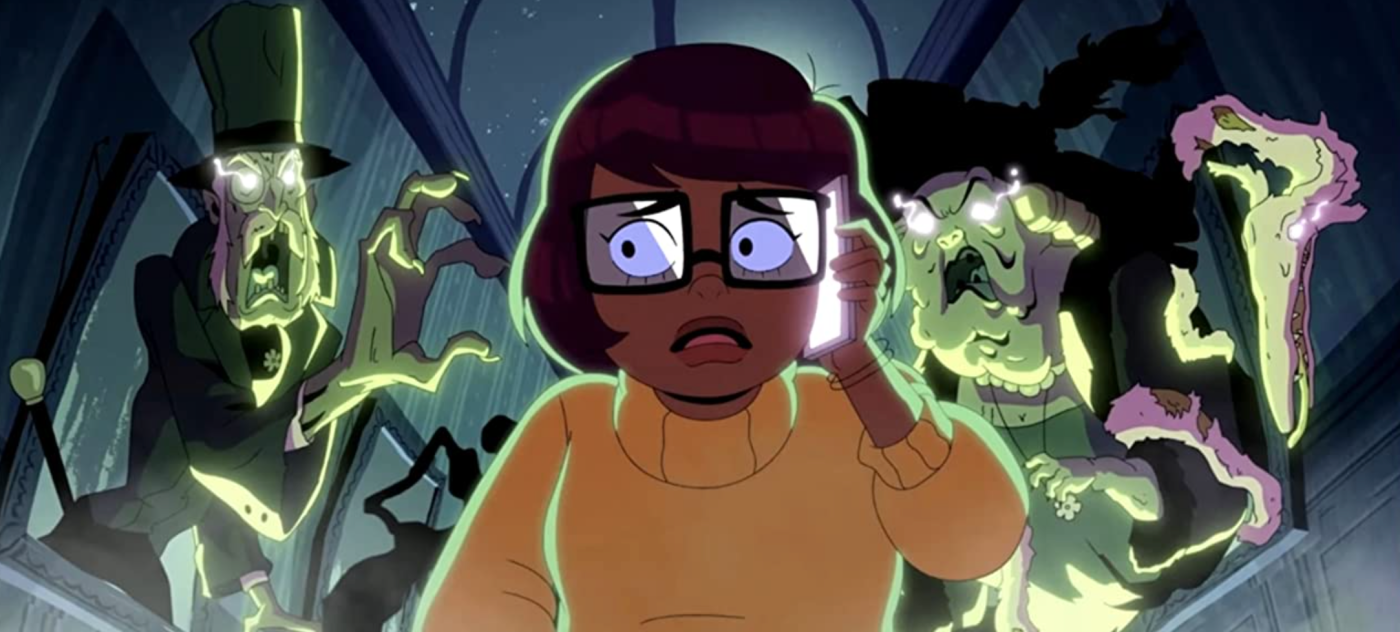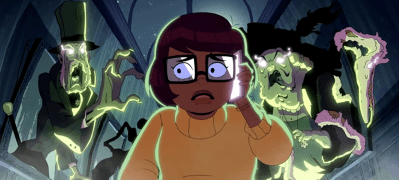Mindy Kaling would have done well to speak with James Gunn about his failures writing an “adult” Scooby-Doo. Her new HBO Max series Velma fails for many of the reasons Gunn’s early-aughts live-action Scooby films did—plus a whole extra heaping of other reasons. The show’s problems are best summed up in a viral tweet:
Who indeed?
Taking a page from Gunn’s book, Kaling attempts to sex up Scooby-Doo. Taking another page from Gunn’s book, she fails miserably, with an approach to sex that a middle-school boy might deploy. The humor—if one can call it that—that Kaling and her writing team attempt to create in the show is exemplified by the fact that they’ve made a major plot point, and countless jokes, out of the fact that this show’s Fred has not experienced puberty, leaving him essentially a high school eunuch. Bizarre, tasteless, crass, and, even more unforgivably, unfunny.
Sex isn’t the only change Kaling has brought to the Mystery Gang: they’re also now fundamentally different characters. Velma is a cruel, socially awkward, vindictive know-it-all with trauma-induced hallucinations brought on by mystery solving. Fred is a man-boy with daddy issues who can’t remember the name of any social inferiors. Daphne is an orphaned drug dealer. And Shaggy isn’t a burnout. He isn’t even called Shaggy, instead going by his given name, Norville. These character changes are justified in the name of genre dissection, but little in the way of dissection actually occurs. The writers were apparently under the impression that audiences would be amused simply by seeing well-known characters act differently.
The show’s writers seemed convinced Velma is full of smart comedy. It isn’t. Case in point: The show starts with a shower fight between teenage girls, who argue about the merits of nudity in show pilots. Rather than clever, the scene comes off as boring and obvious. Taking place in a high-school locker room, it’s also creepy. Such lazy attempts at commentary bury the script, with jokes about the tropes of mystery shows, teen dramas, and coming-of-age stories flying by at a mile a minute, none of them actually landing.
Perhaps most mind-bogglingly for a Scooby-Doo show—except, of course, for the absence of the dog himself—is how little the mystery actually matters to the plot of Velma. Murders occur, nominally motivating various characters into action. Yet the show is far more interested in exploring what would happen if Velma and Daphne had sexual tension and what would happen if a sexually immature Fred embarrassed himself constantly.
Velma suffers particularly in comparison to a recent predecessor in the Scooby-Doo universe with similar aspirations, Scooby-Doo! Mystery Incorporated. That show offered a darker take on the mystery-solving teens that added Lovecraftian horror, teen drama, and actual genre dissection in a way that remained true to the spirit of the original Scooby characters. Everyone was more fleshed out, but still recognizably the same characters. The show succeeded without stooping to lazy sex jokes and shock humor, with an overarching mystery that provided real interest.
There are still six episodes to go in Velma, but there’s little to suggest the show will change in the slightest. It’s a sketch stretched to series length, trying to cover its shortcomings with progressive window-dressing—Fred is the only member of the Mystery Gang to remain white in the show, and Velma and Daphne are shown to be bisexual. But underneath the virtue signaling, there’s nothing to Velma. The real mystery is how it got made.







Please note that we at The Dispatch hold ourselves, our work, and our commenters to a higher standard than other places on the internet. We welcome comments that foster genuine debate or discussion—including comments critical of us or our work—but responses that include ad hominem attacks on fellow Dispatch members or are intended to stoke fear and anger may be moderated.
With your membership, you only have the ability to comment on The Morning Dispatch articles. Consider upgrading to join the conversation everywhere.